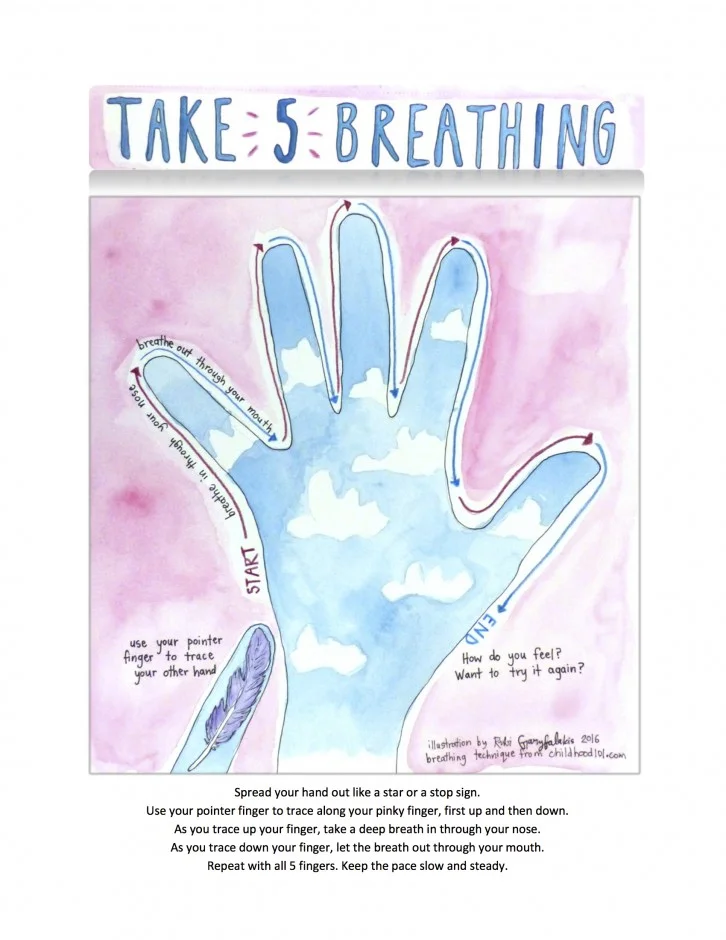June 20 marked the first official day of summer, and this week schools will be wrapping up for the year. Elementary school students are emptying their desks as high school students have already finished writing their final exams. There seems to be energy in the air – part excitement, part anticipation, and part… anxiety.
While summer is often promoted via media and advertising as a fun, relaxing time of year, in reality it can be a stressful season for kids and parents alike. Kids experience a major disruption in their routine – they are used to spending 7.5 hours per day, five days per week, at school. Whether or not they enjoy school, it provides structure for their day. Likewise, parents and caregivers are used to kids being at school. Schedules are not necessarily less busy for adults during the summer months. All of the usual responsibilities of work and home stay the same, but now there’s the additional task of caring for the kids – keeping them safe, occupied, and entertained during the hours when they’re usually at school. It’s a disruption in routine for the adults as well.
Add to the disrupted routine an expectation that summer is supposed to be fun and enjoyable, and maybe mix in some feelings of guilt if kids and adults feel like they should be enjoying more time together and looking forward to time off from school, and you have a recipe for a whole lot of stress and anxiety!
Today we want to share that it’s okay to feel stressed or anxious about summer vacation. In fact, it’s completely understandable. Routines provide structure, predictability, and boundaries that allow us to feel safe and secure, and to develop a sense of mastery that we can handle changes or take on new challenges within the structure of the routine. Disruptions to the routine can cause stress, anxiety and fear in children and adults alike because we don’t know what to expect or what is expected from us. Our framework is removed and we may feel confused and/or overwhelmed. The increase in stress and anxiety can cause undesirable behaviours in kids like temper tantrums, meltdowns, or hitting. It can make adults irritable, short-tempered, and on-edge.
One of the goals of art therapy is to help individuals build their ability to manage emotions, including anxiety. Temper tantrums, meltdowns, and acting out behaviours are often the result of stress and anxiety. They’re an attempt to communicate what’s going on inside and to have needs met. In our work at Art as Therapy, we help individuals to build skills to effectively communicate feelings so that they can have their needs met in adaptive ways. We also help individuals and families to build tools to help them manage and tolerate stress and anxiety when it arises.
While individual art therapy sessions allow us to support the unique needs of clients and families, today we’re sharing three general strategies to help you and your family manage stress connected to summer vacation.
- Make a family summer calendar. Not knowing what to expect can be a major cause for anxiety. If there are parts of the summer that are pre-planned, put them on the calendar. Add in the family getaway, soccer games, day trips, or days that parents have to work. As things come up, add them to the calendar. Try using a different colour for each family member and an additional colour for family events. Put the calendar in a central location where everyone can see it. This will help kids to have a sense of where they will be and what will be happening, which may help them to feel less anxious and afraid of the unknown. Looking at the calendar may help kids to enjoy the anticipation of a fun outing or conquer any fears connected with an upcoming event. It will also help the adults to see what’s planned and may reduce anxiety or pressure to plan more activities.
- Try to maintain morning and bedtime routines. While the activities during the day may be different from usual, waking up and going to sleep are a constant. If the routine can stay the same during these two times of the day, it will provide some structure and stability during an otherwise uncertain time. Andy Smithson, LCSW, describes morning and bedtime routines as bookends on each day: “They help our children to feel some security and have time to bond regardless of work schedules, or whatever crazy experiences life brings” (http://www.pbs.org/parents/expert-tips-advice/2016/06/5-tips-lower-summertime-stress-keep-joy-summer/). Mornings can be a chance to eat together and plan for the day, setting expectations and clarifying what will happen. Bedtime is so important to help kids debrief and relax at the end of the day and get ready to sleep. Even if it’s an hour later than usual or you’re sleeping away from home, try whenever you can to maintain a consistent structure for bedtime with brushing teeth, turning off electronics, story time, or whatever your routine involves.
- Take 5 Breathing technique. Despite the best efforts, it is likely that there will be some meltdown moments this summer, and that’s okay! Sometimes fun can be overwhelming, or there are just too many choices, or things don’t go according to plan. When we feel anxious, stressed and overwhelmed, our bodies go into fight or flight mode and it is very difficult for us to calm down and think clearly. What our bodies need is for us to stop and take deep breaths that actually reset our biological system and allow our bodies and minds to calm down. “Take 5 Breathing” is a simple technique developed by Leonie MacDonald to encourage kids (and adults) to stop and take 5 deep breaths. Check out the illustration with today’s post for instructions on how to do Take 5 Breathing. For a video demonstration, visit: http://childhood101.com/2015/04/take-5-breathing-exercise/. We like this technique because it’s simple, portable, and the sensory component of tracing fingers adds an additional calming element. When a meltdown moment comes along, stop with your child and take 5 deep breaths together!
These strategies can help you and your family to manage the stress that accompanies a disrupted summer schedule. Another thing that may help is finding a balance between planned and unplanned activities. Art as Therapy provides individual art therapy sessions, but we also offer group programming. If you’re looking for something to do this summer, check out our exciting workshop series for kids and teens. See our previous blog post for details!
Written by Rubi Garyfalakis, Art Therapist at Art as Therapy
References:
http://www.special-learning.com/article/negative_response_to_a_disruption_of_routine
http://www.ahaparenting.com/parenting-tools/family-life/structure-routines
http://www.ahaparenting.com/parenting-tools/traditions/Summer-Family-Activities-Vacation

